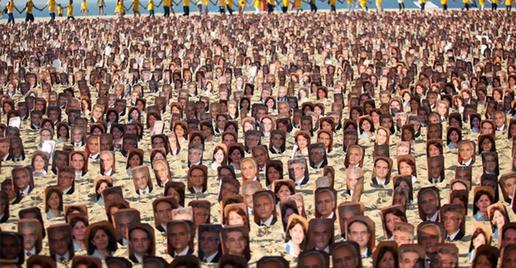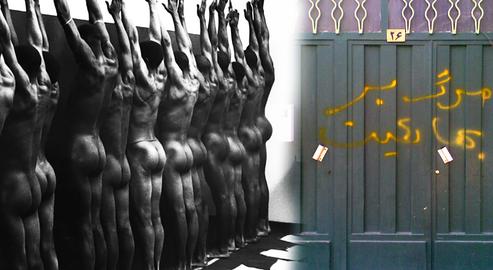Dear friends
This is a special edition of the newsletter. We have a new film for you, an entertaining and informative documentary about a subject that is rarely discussed in the media. Today IranWire releases The Cost of Discrimination, a documentary about how prejudice and discrimination against one group in a country can hurt the society as a whole. The film draws parallels with the Apartheid regime in South Africa and the persistent persecution of the Baha’i religious minority in Iran. For the Bahai’s, playing a productive part of any community they live in is important. It is in fact a key tenet of their religion. But the faith’s strong belief in gender equality and that the clergy is not necessary for practicing a faith has led authorities in the Islamic Republic to turn against them. The Baha’is are barred from teaching and studying at universities in Iran and have been subjected to “economic apartheid.” Their businesses have been forcefully closed down and they cannot take on government jobs. There are strong comparisons between what is happening in Iran today and the brutal Apartheid system that ruled South Africa for four and half decades. South Africa's recent history has shown the world that a progressive society cannot be built when there is systematic injustice, and it’s something that’s true in Iran as well.
You can also watch my 2014 film To Light A Candle, which tells the story of the underground university the Baha'i Institute of Higher Education (BIHE). Through interviews, personal stories and dramatic archival footage – some of it smuggled out of the country – the film looks at the authorities’ systematic abuse of the Bahai’s and their response: To keep building knowledge and understanding at every turn.
Since I started working with the Baha’i community in 2013, I’ve made many friends, and some of them are now my best friends and colleagues. Almost every Baha’i I’ve met and worked with has been among the most honest and hard-working people I’ve ever met. I’m sure there are some Baha’i jerks, but I haven’t come across one yet! I think we, non-Baha’i, Iranians can learn so much from this religious minority. There are only 300,000 Baha’is in Iran, but the government of Iran cannot tolerate this tiny minority.
The length to which the Iranian government goes to persecute Baha’is across Iran is preposterous. And the peaceful resistance of Baha’is against this oppression is nothing but heroic. One such story is that of Arastoo Asadi, whose welding shop was forcibly shut 10 months ago because he closed his shop on a Baha’i holiday. Arastoo has done everything he can to appeal to authorities, from writing letters to visiting every official in his province. But what makes Arastoo a hero is that he’s been carrying on welding outside his shop, on the sidewalk. He’s not worried about losing clients, because they trust him and come back to him — but he is worried about the coming winter months, and is not sure if he can continue welding in the cold.
Another impressive Baha’i is the entrepreneur and philanthropist Payam Zamani, now based in the United States. His business One Planet Ops is at the forefront of the “internet of things” industry, invests in a range of businesses and supports recent graduates. He and his wife also champion Tahirih Justice Center, which works with immigrant women and girls fleeing violence. The Tahirih Center is run by Laily Miller-Muro, yet another amazing Baha’i.
The war against the Bahai’s is clearly a losing battle. Iranian opinion about the Baha’is is changing, and changing fast. And it’s not just human rights advocates and people wanting reform who are listening — Faezeh Hashemi, the daughter of the late influential figure and former president Akbar Hashemi Rafsanjani, has also spoken up for the Baha’is, and many other influential Iranians have joined her.
But the hatred does continue. In late June, a schoolmaster in Iran made the headlines when he said Baha’is do not have the right to education. He echoed comments made by the Supreme Leader, who indirectly called on people in the education sector to discriminate against Baha’is. It led to an outpouring of anger on Twitter, making clear once again the growing gulf between Iranian public opinion and that of some of the regime’s most powerful figures. Tragically, there are few signs that the highest officials of the Islamic Republic will be willing to change their ways anytime soon.
Warm regards
Maziar
visit the accountability section
In this section of Iran Wire, you can contact the officials and launch your campaign for various problems




















comments